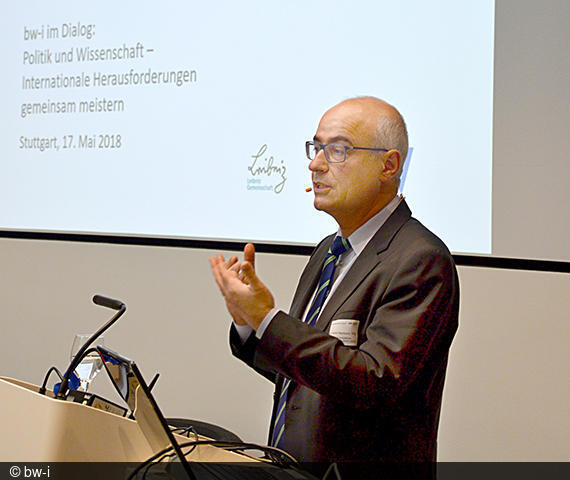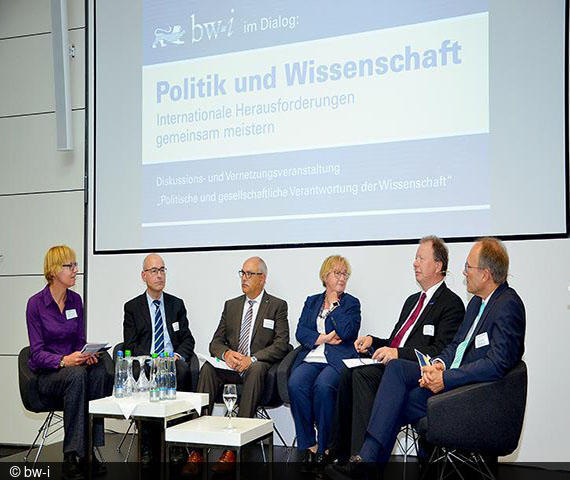ZEW President at bw-i event: Internationalisation – Opportunities and Challenges
Dates and NewsHow do current political developments shape our actions? What are the challenges of internationalisation? And how can science and research support policymakers? These were just some of the questions addressed by prominent experts from the worlds of politics, economics and research in a podium discussion on 17 May 2018. The networking event “Politics and Academia – Tackling International Challenges Together” was organised by the competence centre Baden-Württemberg International (bw-i), with ZEW President Professor Achim Wambach, PhD, providing the economic perspective on a panel of experts.
In his keynote speech, Professor Wambach shed light on current developments in digitalisation, focusing particularly on the challenges facing academia and the German economy. “When it comes to digitalisation, Germany has a lot of catching up to do,” he stated. Even if Germany is able to keep up with leading economies, ZEW research findings suggest that there is still much need for improvement in the areas of digital business models and competencies.
Economics and science belong together
During the event, Baden-Württemberg Minister for Science Theresia Bauer highlighted the significant role of science and research in society. According to Theresia Bauer, science is the key to our world, helping us to overcome the challenges of our time. In this regard, Baden-Württemberg can be seen as a positive example. On many occasions in the past, the state in Southern Germany has benefited from the advances made in academic research. What is more, thanks to science, the society is able to successfully overcome political and economic challenges.
Bridging gaps with academic research
“Academic research does not stop at national borders,” said Dr. Kai Schmidt-Eisenlohr, CEO of bw-i, encapsulating the basic message of the evening permeating every discussion: The fact that internationalisation is now more important than ever is nothing new. How governments respond to challenges resulting from digitalisation and increasing interconnectedness is, however, often a spontaneous decision. This is where science steps in, acting as an advisor to political decision-makers with the help of empirical research findings. “Academic diplomacy” is what is needed to build bridges between societies, fostering understanding, strengthening partnerships and developing strategies for surviving through crises.
Tackling challenges together
The event concluded with a debate between ZEW President Professor Achim Wambach, Minister Theresia Bauer, Professor Wolfram Ressel, president of the University of Stuttgart, Professor Bastian Kaiser, chair of the Conference of Rectors of the Universities of Applied Sciences in Baden-Württemberg (HAW BW) and Dr. Christian Müller, director of the strategy department at the German Academic Exchange Service (DAAD), on how politics and science can go hand in hand. The discussion was moderated by the science and current affairs journalist Eva Wolfangel.


